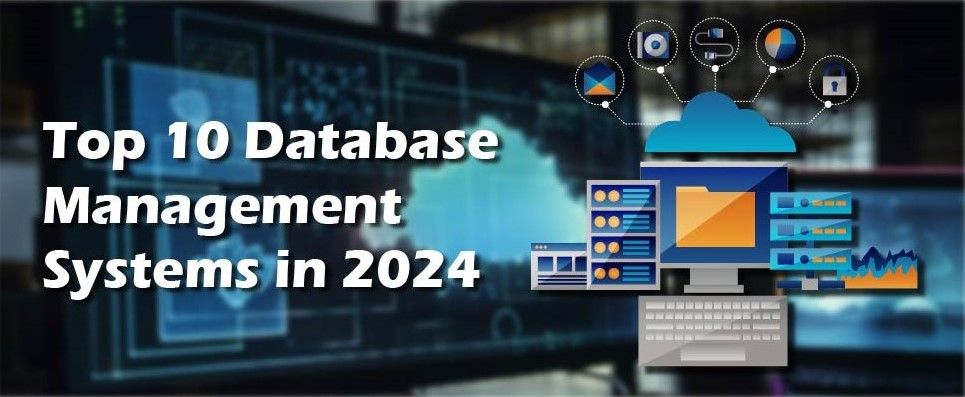Table of Contents
ToggleIntroduction
As businesses expand, they need systems that can store large volumes of data in a structured way. Database management systems (DBMS) increase efficiency by offering improved access to data and an efficient way of managing and analyzing it. Over the years, database management systems have become a crucial part of how customers and businesses access information. In this blog, we will look at the 10 best database management systems to use in 2024.
What Is a Database Management System?
A DMBS is a platform used to define, store, retrieve, and manage the data within a database. Database Management Systems allow businesses of all sizes to create, maintain, and manage databases. Oracle, MySQL, MongoDB, Redis, and PostgreSQL were some of the most popular database management systems in 2023. A simple example is a small business, like an online jewelry store, using a DBMS to collect and store customer information and use it to gather insights for growing its revenue. A database management system not only offers standard database functionalities but also advanced management capabilities. These include in-depth and custom reporting, performance monitoring, metadata visibility and analysis, usage analytics, and compliance checks.
Must Read: 12 DATABASE EXAMPLES IN REAL LIFE
Difference between DBMS and Database
Database Management Systems (DBMS) consist of complex software used to manipulate databases. The software saves data on the secondary storage devices. A database is a collection of related sets of data used by businesses and organizations to solve data management needs. Here are the key differences between DBMS and databases.
| Category | DBMS | Database |
|---|---|---|
| Access | Many people can access database management systems. | Few people can access databases at the same time. |
| Storage | DBMS maintains all the records on a single computer. | Databases can be maintained in computers, physical ledgers, books, and papers. |
| Speed | Information retrieval is quick as computer systems are involved in database management systems. | Databases can be handled manually or via computers, so they can slow down when SQL is not used to retrieve information. |
| Backup and Recovery | DBMS ensures availability of data even after system failures. | Databases do not guarantee the availability of data in case of system failure. |
| Data Manipulation | It is possible to change a lot of information at the same time by multiple users. | Databases do not allow many people to change information at the same time. |

Don't miss out on your chance to work with the best
apply for top global job opportunities today!
Top 10 Database Management Systems in 2024
Google Cloud SQL

G2 Rating: 4.2 | Gartner Rating: 4.4
It is a fully managed relational database management system by Google Cloud Platform (GCP). Google Cloud SQL offers its users a convenient and scalable solution for deploying, managing, and maintaining relational databases in the cloud.
Why should you use Google Cloud SQL?
It offers functions that help with backups, high availability and failover, export & import, monitoring, logging, maintenance, and updates. Google Cloud SQL is an excellent choice if you want to spend more time using a DBMS than managing it. With Google Cloud SQL, you can:
- Create a Cloud SQL instance
- Explore data with SQL statements
- Connect to Compute Engine using the Cloud SQL Auth proxy
- Create database tables and import .sql data from Cloud Storage
- Connect to BigQuery Federated Queries and Data Studio
Google Cloud SQL Pricing
The pricing depends on user configuration settings.
Microsoft SQL Server

G2 Rating: 4.4 | Gartner Rating: 4.4
It is a relational database management system often chosen by users because of its ability to handle Big Data efficiently. It helps businesses to gather valuable insights from the large amounts of data stored and analyzed.
Why should you use Microsoft SQL Server?
It is considered one of the most secure database systems as it has very complex encryption algorithms. Moreover, MS SQL Server editions are available for individuals, medium-scale organizations, and large enterprises. You should opt for Microsoft SQL Server because:
- It is easy to install with detailed instructions for beginners.
- It offers great compression and encryption capabilities.
- Its complex encryption algorithms ensure data security.
- It has multiple editions and pricing models.
Microsoft SQL Server Pricing
- Express and Developer (free versions)
- Web (See your hosting partner for pricing)
- Standard (starts at $230)
- Enterprise ($15,123)
Also Read: DIFFERENCE BETWEEN SQL VS. NOSQL DATABASE
SQL Developer by Oracle
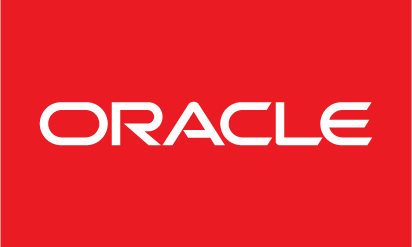
G2 Rating: 4.3 | Gartner Rating: 4.2
It is an integrated development environment by Oracle that is offered free to users. If you are looking for a DBMS to make the development and management of Oracle Database simpler, you should consider SQL Developer by Oracle. This DBMS offers options in both traditional and Cloud deployments.
Why should you use SQL Developer by Oracle?
Oracle SQL Developer is a Java-powered application for Windows, OS X, and Linux. It is easy to download and offers automatic formatting. provides users with three interfaces: Desktop, Browser, and Command Line. Oracle SQL Developer offers:
- Liquibase integration for schema versioning
- 3rd party DBMS migrations to Oracle
- Full featured PL/SQL IDE
- Oracle On-Premises to Oracle Cloud migration
SQL Developer by Oracle Pricing
You can check the pricing on Oracle Cloud Cost Estimator.
MongoDB
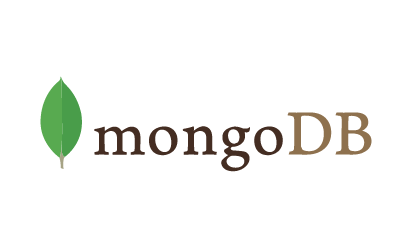
G2 Rating: 4.5 | Gartner Rating: 4.5
MongoDB is a scalable, flexible NoSQL document database platform for modern applications. It is a cross-platform, document-oriented database management system built by developers to offer a unified, consistent experience. Compared to a traditional structural database engine, Mongo DB offers better performance.
Why should you use MongoDB?
It is a state-of-the-art data platform with excellent support and consulting services for its enterprise data services. Businesses looking for DBMS with flexibility, scalability, and fast data access should opt for MongoDB. Some of the features that MongoDB offers are:
- Ad-hoc queries for optimized, real-time analytics
- Indexing appropriately for better query executions
- Replication for better data availability and stability
- Splitting larger datasets across multiple distributed collections
- Large scale load balancing via replication and sharding
MongoDB Pricing
- Serverless (Starts at $0.10/million reads)
- Dedicated (Starts at $57/month)
- Shared (Try for free)
Snowflake
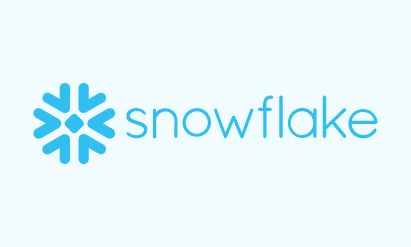
G2 Rating: 4.5 | Gartner Rating: 4.6
Snowflake is a preferred choice for structured and semi-structured data. Reviewers on G2 have claimed that Snowflake is one of the easiest to use in big data processing and distribution. With Snowflake, organizations can discover and securely share governed data, execute diverse analytic workloads, and unite siloed data.
Why should you use Snowflake?
Businesses consider moving data to Snowflake as it has data warehousing certifications that simplify business intelligence (BI). With the Snowflake architecture, all data can be moved to a centralized location and run through real-time BI tools. Snowflake is one of the best performing database management solutions because:
- It offers innovative data sharing capabilities in a collaborative environment.
- It connects seamlessly with popular BI, ETL, and data visualization tools.
- It is compliant with data security standards such as GDPR, HIPAA, and PCI DSS
- It includes built-in automatic query performance optimization via a query optimization engine
Snowflake Pricing
It follows a consumption-based pricing model where customers pay for what they use.
Microsoft Access
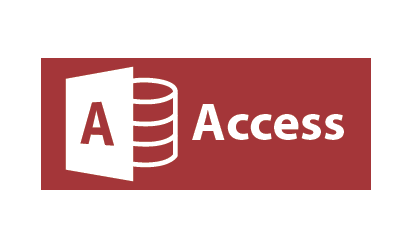
G2 Rating: 4.0| Gartner Rating: NA
If you are looking for a DBMS that combines the relational Access Database Engine with a graphical user interface and software-development tools, Microsoft Access is a good option. Although it is available only for PCs, it helps you create and customize databases like a professional. Microsoft Access also allows you to create your own database apps easily in various formats.
Why should you use Microsoft Access?
It offers simple tools and easy-to-use templates to build highly functional applications in as little time as possible. With Microsoft Access, you can:
- Import and export to other Microsoft Office and other applications
- Create and publish data using the built-in templates
- Use Visual Basic to automate business processes and create useful forms and reports
- Integrate data between Access and line-of-business apps using the Access connector library
Microsoft Access Pricing
You can buy Access for ₹ 11,999.00 incl. GST or get Access with Microsoft 365 for your PC.
Amazon RDS
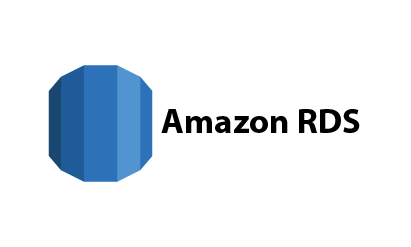
G2 Rating: 4.5 | Gartner Rating: 4.5
It is a Relational Database Service by AWS and simplifies setting up, operating, and scaling a relational database in the cloud. Amazon RDS is available on Amazon Aurora, MySQL, PostgreSQL, MariaDB, Oracle Database, and SQL Server engines.
Why should you use Amazon RDS?
One of the major reasons why businesses use Amazon RDS is that the code, applications, and tools already being used with the existing databases can be used with Amazon RDS. The other reasons to choose Amazon RDS are:
- Setting up Amazon RDS and managing database administrative tasks is easy
- Users can explore three different deployment environments, including the Cloud
- Amazon RDS Blue/Green Deployments support safer, faster, and simpler upgrades
- Amazon RDS Proxy can be used to increase resiliency and scalability
- Aurora I/O-Optimized allows Improved price performance and predictability at scale
Amazon RDS Pricing Models
- Free Tier (For 12 months)
- Pricing by Amazon RDS engines
- Pricing by Amazon RDS deployments
- Amazon RDS Extended Support costs
- Data transfer costs
Oracle Enterprise Manager
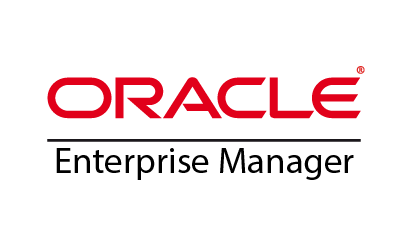
G2 Rating: 4.3 | Gartner Rating: 4.4
This on-premise management platform by Oracle lets you manage all Oracle deployments through a single dashboard. Whether you work in a data center or Oracle Cloud, Oracle Enterprise Manager is known to offer enhanced visibility and control across your entire IT infrastructure.
Why should you use Oracle Enterprise Manager?
The best reason to use the database management platform is that it offers management packs that support additional functionality. For example, the Oracle Diagnostics Pack offers inbuilt real time and automatic performance diagnostics and monitoring functionality. Here are a few other reasons why you should choose Oracle Enterprise Manager:
- The Automatic Database Diagnostic Monitor (ADDM) helps in identifying performance issues.
- It offers real-time SQL Monitoring and Database Operations Monitoring
- It provides automated provisioning and cloning of databases.
- It has an Incident Manager that manages troubleshooting of incidents
Oracle Enterprise Manager Pricing
The Oracle Cost Estimator will help you with the costs based on your projects.
Toad For Oracle
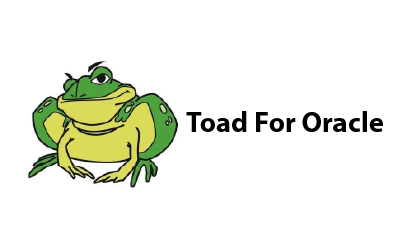
G2 Rating: 4.4 | Gartner Rating: NA
It offers a series of desktop tools that automate developing and managing databases. Toad for Oracle supports Oracle, SQL Server, DB2, MySQL, SAP Solutions, and more.
Why should you use Toad for Oracle?
The best reason for choosing Toad for Oracle is that it lets you manage relational and non-relational databases using SQL. It is used by database administrators, database developers, and business analysts to simply SQL development and tasks. The key reasons to use Toad for Oracle are:
- It reduces code defects and improves code quality and performance.
- You can use it for PC or Mac depending on the need of your projects.
- The Toad for Oracle DBA Edition allows you to check database health.
- With team coding, Toad offers collaborative access to schema objects.
- Minimizes risks associated with database changes.
Toad For Oracle Pricing
It has more than 10 pricing models from $229 to $3,661, depending on which products you choose.
Azure Data Studio
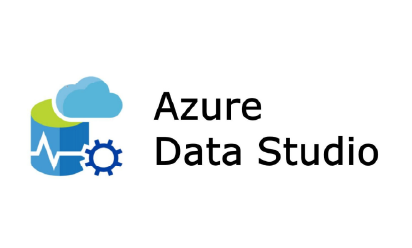
G2 Rating: 4.4| Gartner Rating: NA
Azure Data Studio has many tools for the Microsoft family of on-premises and cloud data platforms on Windows, MacOS, and Linux. This is your option if you are looking for a modern open-source, cross-platform hybrid data analytics tool.
Why should you use Azure Data Studio?
Microsoft Azure is widely used by major companies for cloud computing needs. The main reason for you to choose Azure Data Studio is that it focuses on the functionality used the most by data platform developers. It is one of the best options for data professionals who use SQL Server and Azure databases on-premises or in multi-cloud environments. A few striking features of Azure Data Studio are:
- Built-in query editor, native Jupyter Notebooks, and an integrated terminal
- Platform flexibility for data management, deployment, and migration
- Workspaces with customizable, intuitive services to customize your workflows
- Extensions that allow you to use new features and additional services
Azure Data Studio Pricing
Azure Data Studio is free for private or commercial use.
Which Database Management System Should You Choose?
Without a doubt, database management systems (DBMS) are essential tools and strategies for businesses to deliver scalable performances. Interestingly, many databases are open source and free to use. However, if you are looking for paid options that ensure better data security, there are also many to choose from. Google, Amazon, Microsoft, and Oracle are the popular names that offer robust database management systems for individuals, medium-scale organizations, and large enterprises. With respect to which DBMS you should choose, it depends on many factors, such as data volume, complexity, performance requirements, scalability needs, budget, and the expertise of the development team. A good understanding of DBMS will help you make informed decisions that align with your project goals. If you are a developer looking for opportunities that match your talent, sign up with Olibr to know more.
Take control of your career and land your dream job
sign up with us now and start applying for the best opportunities!

FAQs
Spreadsheets can be used to manage a limited volume of numerical data. However, if you have to manage different types of data including images, a database is the best choice.
Data is stored as files in DBMS, whereas RDBMS stores data in the form of tables.
MySQL is a Relational Database Management System that uses SQL database language.
If you want to spend more time using the DBMS than managing it, use Google Cloud SQL.

